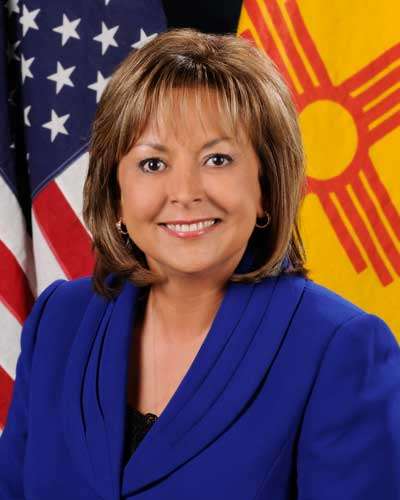Future of New Mexico's Overwhelmingly Supported Asset Forfeiture Reform Uncertain
If governor doesn't sign bill this week, it is dead.


Late March, New Mexico's legislature approved some major reforms to the state's asset forfeiture laws. It eliminated the concept of "civil" asset forfeiture, meaning law enforcement agencies would have to actually convict people of crimes to take their assets. It also requires all proceeds from asset forfeitures by law enforcement agencies to be put into the state's general fund. This is important because it reduces police incentives to engage in reckless forfeiture efforts, because they'd no longer be able to keep what they grab. It also means that the law enforcement agencies wouldn't be able to bypass state law by turning to the Department of Justice's Equitable Sharing Program. The program lets local law enforcement agencies keep seized assets by partnering with federal agencies, but it requires the locals to have their own funds for them. House Bill 560 (pdf) would forbid law enforcement agencies from retaining any forfeited property.
The system has been prone to terrible, terrible abuses by law enforcement agencies in New Mexico. That's perhaps why the HB560 overwhelmingly passed. Nobody voted against it in either houses of the state's legislature. That's impressive since control of the two houses is split between the Democrats and the Republicans. Bipartisanship to get behind?
But it's not over. The legislation is sitting on the desk of Republican Gov. Susana Martinez. She has apparently not declared whether or not she will sign it. The legislative session has already ended. If Martinez doesn't sign the bill into law by Friday it is dead. She can actually veto it without doing anything. Despite the bipartisan support, no veto override is possible now. It would have to be reintroduced next year.
It's unclear what will happen. Despite the popularity of the legislation, Martinez worked as a district attorney prior to her run for governor. She has been a part of the law enforcement machinery. I spoke with Paul Gessing, president of the free market-oriented Rio Grande Foundation, one of the members of the coalition behind the push for the legislation, along with New Mexico's American Civil Liberties Union, the Institute for Justice, the Drug Policy Alliance, and others.
"I think she's probably personally not in favor of this kind of thing," Gessing says of Martinez. "She comes from a law enforcement background, prosecutorial no less. Philosophically it's something she doesn't want to see happen. But I think the national interest for both conservatives and the left is impacting her decision, and potential national aspirations may lead her to go ahead and sign."
Those "potential national aspirations" Gessing refers to would be Martinez's possibility as a selection as a running mate for a Republican candidate for president. A latino, female Republican governor that appeals to the conservative elements of the southwest could hit quite a few demographics for the nominee. Sen. Rand Paul just announced his candidacy for president today, and he has been attempting to reform asset forfeiture laws on a federal level. If she vetoes this law, what would it mean for her chances if Paul pushes to the head of the pack?
The legislation has received positive attention throughout the state, Gessing says, getting endorsements from all three of New Mexico's major dailies. But Martinez's office is being quiet about a pending decision.
"I think there's a lot of discussion going on," Gessing says. "If she does veto it, I think she will do it quietly in the form of pocket veto."
Reason has contacted Martinez's office to see if she will comment about her plans for the legislation. If she responds, this piece will be updated.
Editor's Note: As of February 29, 2024, commenting privileges on reason.com posts are limited to Reason Plus subscribers. Past commenters are grandfathered in for a temporary period. Subscribe here to preserve your ability to comment. Your Reason Plus subscription also gives you an ad-free version of reason.com, along with full access to the digital edition and archives of Reason magazine. We request that comments be civil and on-topic. We do not moderate or assume any responsibility for comments, which are owned by the readers who post them. Comments do not represent the views of reason.com or Reason Foundation. We reserve the right to delete any comment and ban commenters for any reason at any time. Comments may only be edited within 5 minutes of posting. Report abuses.
Please to post comments


She ain't gonna sign it.
D'Accord.
Assuming then that New Mexico is like other states and doesn't have a legislative recession coming up, she can do nothing and it'd become law.
It's dead.
Note to self: Start reading article first.
Needs an RFRA type shitstorm to force her hand.
But in positive police news, AZ governor Ducey vetoed insane bill that would have made it illegal to release name of officer involved in shootings of unarmed people.
Well that makes me feel a little better
Balls.
Having former prosecutors and state attorney generals as governors does not work out well for the serfs. Attorney General Mike Easley of NC was elected governor in the 2000s and as a result NC got many pro-law enforcement laws that further curtailed or eliminated rights, innocence and evidence collection procedures that protected citizens.
Wait, what? Rand Paul is running for president?
This Just In: Generalissimo Francisco Franco is Still Dead ...
"If she does veto it, I think she will do it quietly in the form of pocket veto."
That would be a cop-out. 😉
...and potential national aspirations may lead her to go ahead and sign.
Sign it or not, the country would be better off if her political life ends where it is now.
Her husband was the Sheriff in Dona Ana County where she was DA. She is really part of the law enforcement machine.
Was... So they divorced? Or he was the sheriff?
And dona ana? I'm surprised anything from dona Ana made it to the governor's office.
Was the sheriff. I believe he stepped down. I'm not sure, he could still be the sheriff.
It is times like this that I am relieved that Oklahoma has something better than other states. Oklahoma has a system in which if the Governor does not veto a bill within 2 weeks of the close of the session, that bill becomes law by default. It is a way better system than killing bills not explicitly signed into law.
That can cut both ways. Since 99.9999% of laws are bad, increase government power and reduce liberty, I'd rather have a system where laws naturally died on the vine as opposed to automatically going into affect when no one was looking.
Effect
The legislative session has already ended. If Martinez doesn't sign the bill into law by Friday it is dead. She can actually veto it without doing anything. Despite the bipartisan support, no veto override is possible now. It would have to be reintroduced next year.
A fate which was predicted by absolutely no one, I'm sure.
Seriously, this is what usually happens to legislation popular amongst the masses but deeply unpopular to key groups (in this case, police chiefs, police unions, district attorneys, etc.).
Seriously, this is what usually happens to legislation popular amongst the masses but deeply unpopular to key groups (in this case, police chiefs, police unions, district attorneys, etc.).
Committees are supposed to stop that kind of legislation from being put to a vote. So in this case, the committees failed.
FWIW I sent a note to Gov Martinez urging her to sign the bill and encouraged my other New Mexico friends to do the same. We'll see where that goes.
Gay Jay would have totally signed this bill.
"She comes from a law enforcement background, prosecutorial no less."
So she's not interested in doing her job by charging criminals and trying them through to conviction...
"endorsements from all three of New Mexico's major dailies. "
If one of those dailies was the Las Cruces Sun News, how could they tell through all of the grammatical errors?
Would someone please get that woman some eyelashes. Good God.